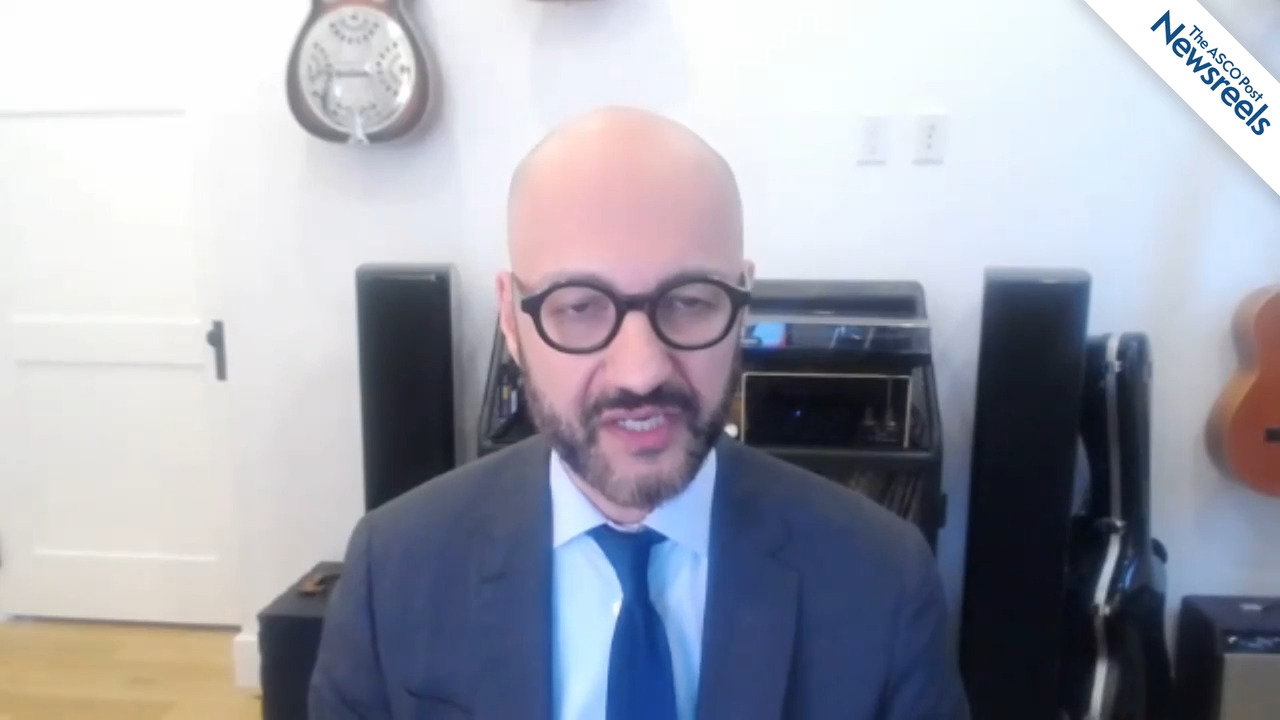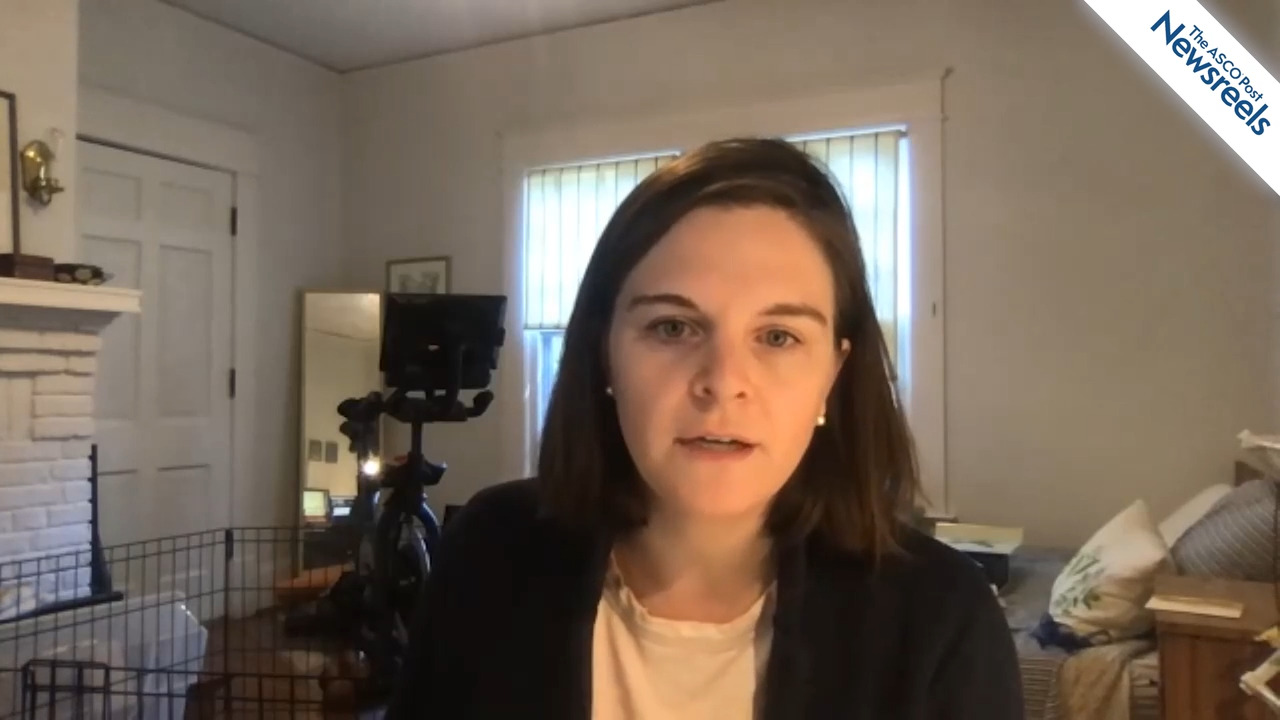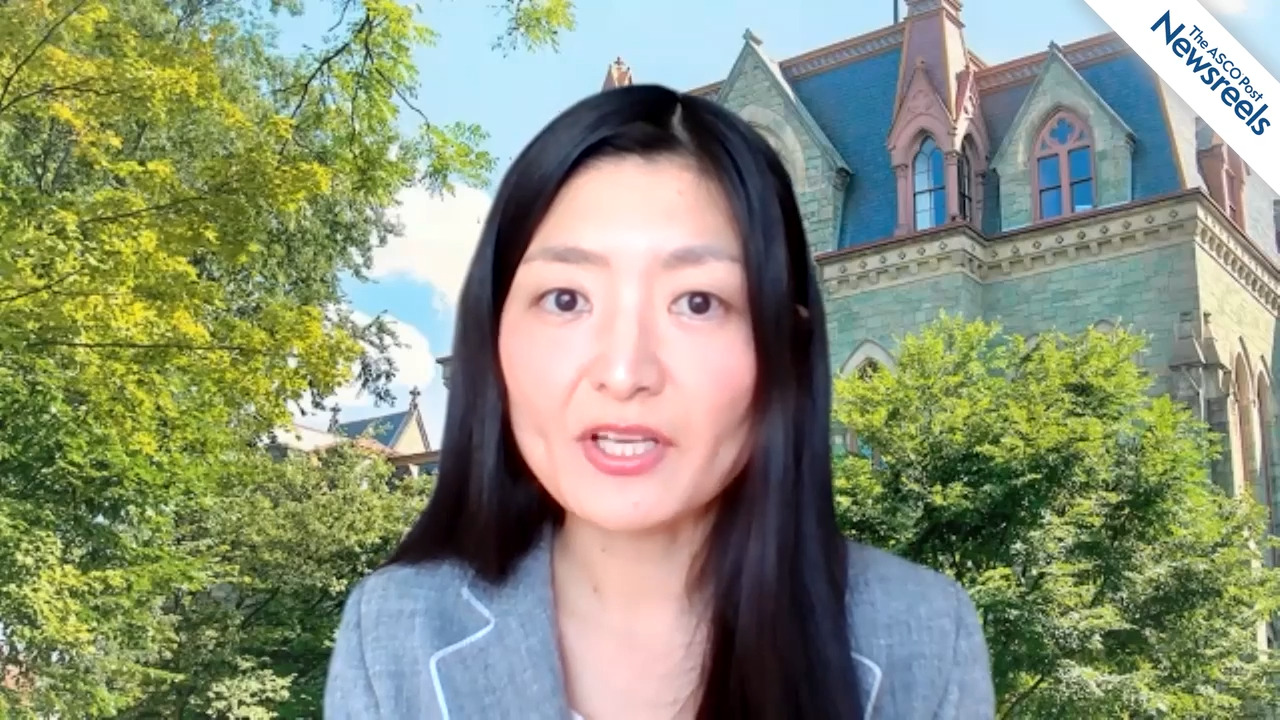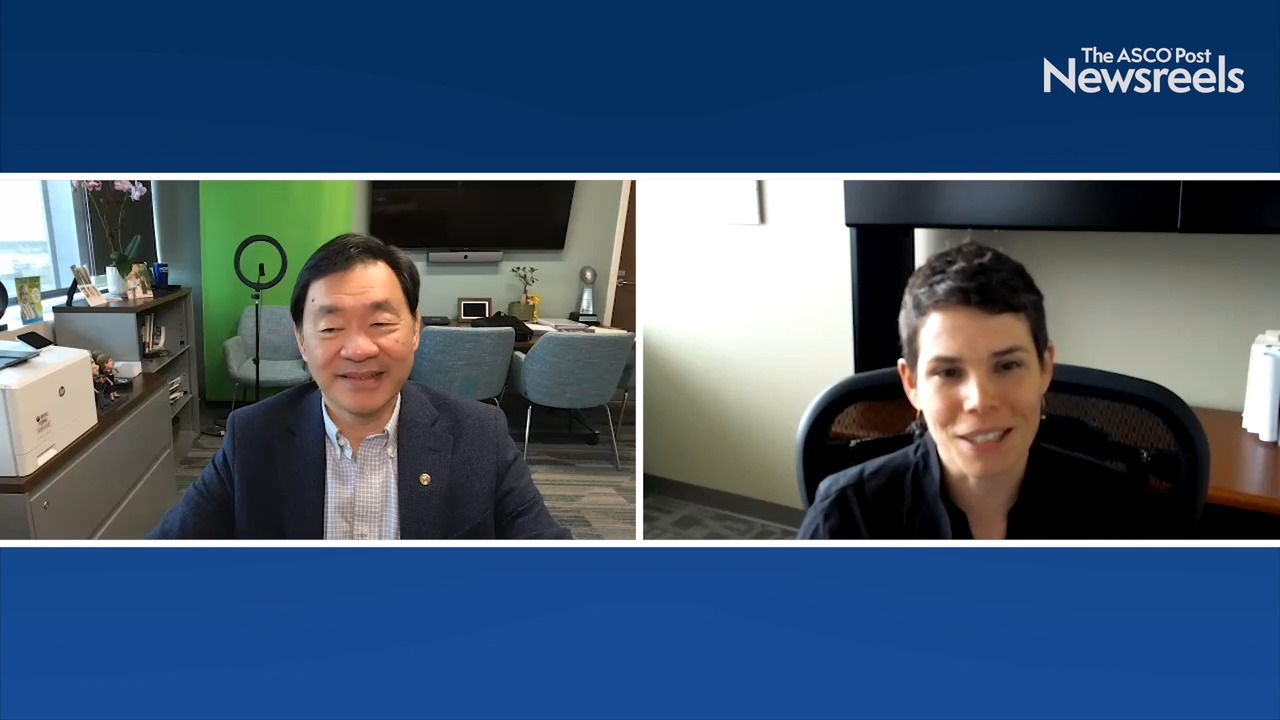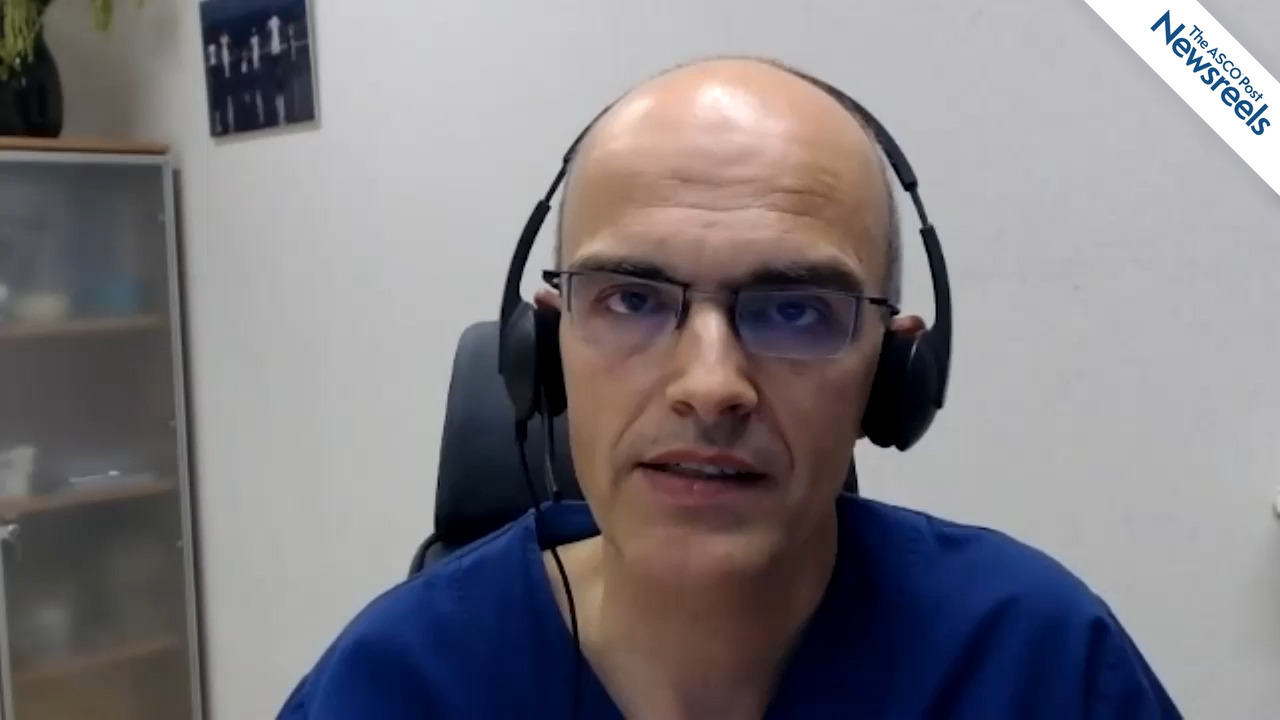Stephanie T. Schmidt, PhD, on NSCLC: The Immunomodulatory Impact of Neoadjuvant Chemotherapy and Immune-Based Treatments
SITC 2021
Stephanie T. Schmidt, PhD, of The University of Texas MD Anderson Cancer Center, discusses the first integrated examination of the immunomodulatory effects of neoadjuvant chemotherapy, nivolumab, and nivolumab plus chemotherapy in resected non–small cell lung cancer (Abstract 962).
The ASCO Post Staff
Sean Khozin, MD, MPH, of CancerLinQ, discusses the therapeutic advances that have made cancer care more targeted, even as real-world patient outcomes lag behind those reported in clinical trials. Dr. Khozin makes the case for the use of digital decision support tools to advance precision at the point of care.
The ASCO Post Staff
Hannah E. Dzimitrowicz, MD, of Duke Cancer Center, discusses study results showing that in patients with melanoma and renal cell cancer receiving immune checkpoint inhibitor therapy, the COVID-19 vaccination appears to be well tolerated and safe. A higher rate of post-vaccination symptoms reported in these patients is likely related to more frequent visits compared with controls (Abstract 625).
The ASCO Post Staff
Yuki Muroyama, MD, PhD, of the University of Pennsylvania Perelman School of Medicine, discusses the interaction between the immune system and a novel marker—T-cell DNA damage and repair response—to understand how that interaction may affect immune cell biology and therapeutic response (Abstract 310).
The ASCO Post Staff
Patrick Hwu, MD, of Moffitt Cancer Center and President of the Society for Immunotherapy of Cancer (SITC), and Mary Dean, JD, CAE, SITC Executive Director, discuss the organization’s mission, strides made in cancer immunology, meeting the challenge of immunoresistance, and the new SITC app for clinical practice guidelines. This app places a useful tool in the hands of health-care providers, one that can be continually updated as the science evolves.
The ASCO Post Staff
Hans Wildiers, MD, of University Hospitals Leuven, discusses the final results from the phase IIb AIPAC study, which suggested that eftilagimod added to paclitaxel may be of benefit to patients older than 65 years with hormone receptor–positive, HER2-negative metastatic breast cancer after endocrine-based therapy. Eftilagimod, which is a first-in-class antigen presenting cell activator, appeared to increase circulating CD4/CD8 T cells, which correlated to improved overall survival (Abstract 948).
